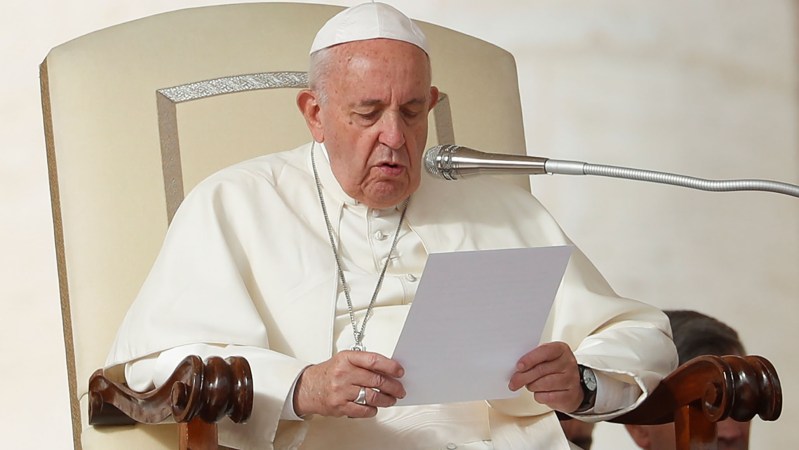
Pentecostalism is booming. The fastest-growing form of global Christianity, it’s not non-denominational so much as trans-denominational. In the Catholic Church, it’s called the Charismatic movement, or the Charismatic Renewal, which, though not exactly hostile to tradition, is antithetical to traditionalism. Catholics of the Charismatic persuasion celebrate and promote the movement of the Holy Spirit in all his exuberance and spontaneity. He’s full of surprises. So, of course, are Christians who purport to channel him.
Pope Francis has been touched by the Charismatic Renewal in Latin America, and by Pentecostalism more generally — even shaped by them, some would say. If you want to know what a Charismatic Catholic sounds like, he gives you a pretty good idea. “Make a mess,” he urged an audience of young Catholics early in his pontificate, meaning that they should defy the fears and inhibitions that would prevent them from taking risks and acting on their faith.
Not that he speaks in tongues. He speaks in fewer of them, in fact, than you might expect of an average pope, Spanish and Italian being the only languages in which he expresses himself comfortably. But he speaks freely, more so than we would expect of an average pope. He provides a lot of material for those who, invested less in the City of God than in the pursuit of political power here below, are inclined to regard the Catholic Church as an umbrella organization of NGOs and think tanks. The temptation to reduce the Church to questions of public policy and political philosophy is great but understandable, given that the Vatican maintains a large formal diplomatic corps — its own State Department, in effect — and a considerable network of academies and other units dedicated to a wide array of cultural, social, political, economic, and even scientific issues.
The pope’s critics on the right think that he leans too far left. Declan Leary on the homepage today makes the case for Francis as “a man of Tradition, perhaps even a man of the Right.” He may be on to something when he describes Francis as “far less liberal” — not less progressive, but less liberal — than his predecessors. Note that Pope Benedict XVI and Pope John Paul II shared an experience that Francis does not: growing up in a Europe torn between a maximally hard Left and a maximally hard Right — between Communism and Fascism. If it’s true, as I think it is, that Benedict and John Paul both maintained in their thought a place for the contributions of liberalism, try to imagine why.






